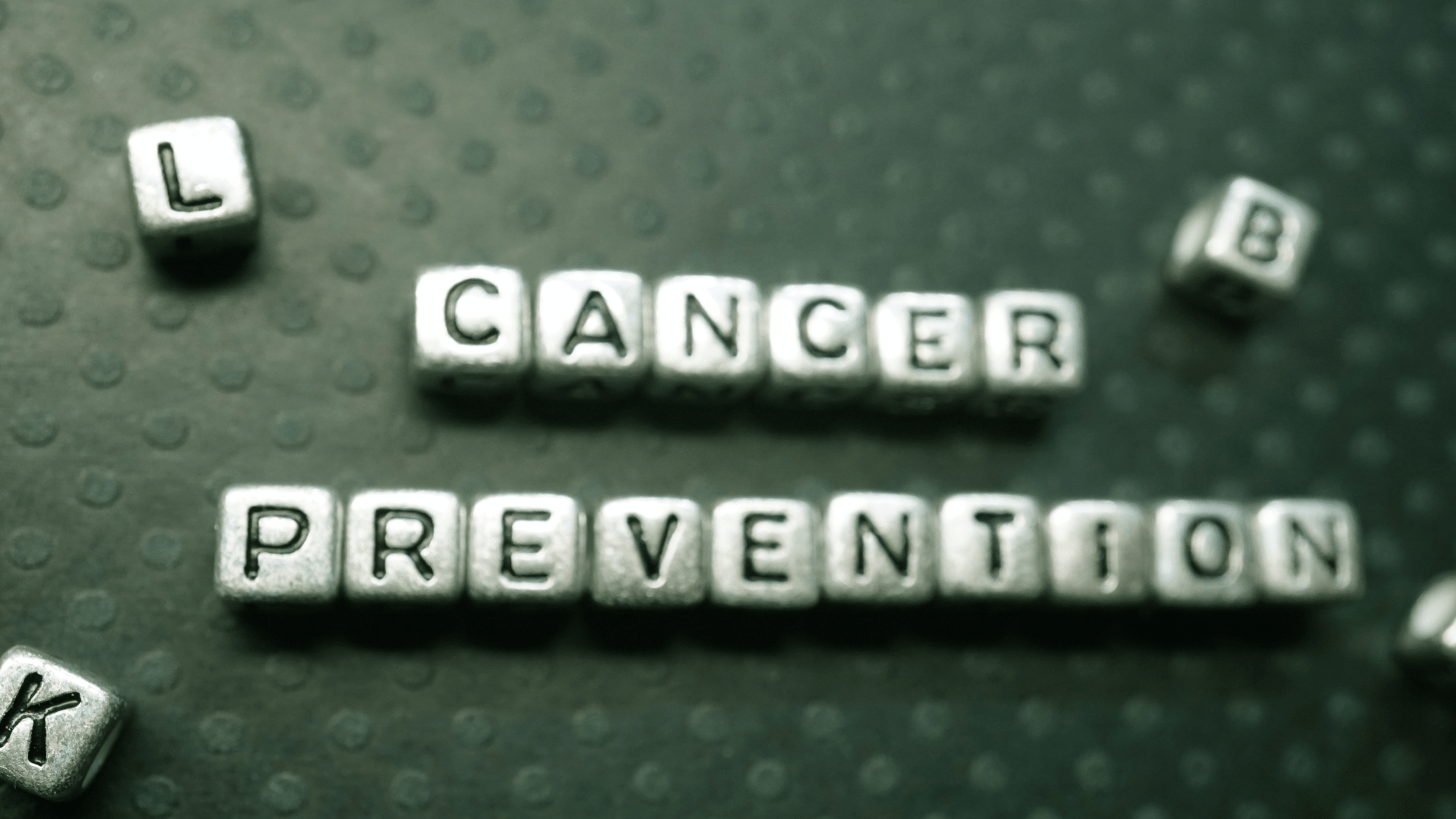Cancer has been a long challenge to the medical field that has affected millions of lives worldwide. Cancer deaths keep skyrocketing year over year. While genetics play a role in cancer risk, lifestyle choices can significantly impact the likelihood of developing this complex disease. Adopting a proactive approach to cancer prevention involves making informed choices in various aspects of our lives.
Risks and causes of cancer
Understanding the risk factors associated with cancer is fundamental to developing a comprehensive approach to prevention. Cancer is a complex group of diseases characterized by the uncontrolled growth and spread of abnormal cells, and its risk is influenced by a combination of genetic, environmental, and lifestyle factors. While certain genetic mutations can predispose individuals to specific types of cancer, environmental and lifestyle factors often play a substantial role.
Exposure to carcinogens, such as tobacco smoke, pollutants, and certain chemicals, can increase the risk of cancer. Additionally, age, family history, and pre-existing health conditions contribute to individual susceptibility. The intricate interplay of these factors underscores the importance of adopting a multifaceted strategy that addresses both inherent and modifiable aspects of risk, emphasizing the need for a proactive and informed approach to cancer prevention. The American Cancer Society highlights the importance of staying up-to-date with recommended cancer screenings for early detection and prompt intervention.
Although there is no evidence proven for a cure, the best thing to do now is to prevent it. Here are seven lifestyle activities that could help prevent cancer.
Maintain a healthy diet.
A nutritious diet is foundational to overall well-being and a potent tool in cancer prevention. Emphasizing a plant-based diet rich in fruits, vegetables, whole grains, and lean proteins provides essential nutrients and antioxidants that combat the formation of cancerous cells. Foods high in fiber, such as broccoli, berries, and legumes, contribute to digestive health and help lower the risk of colorectal cancer.
Reducing the intake of processed meats and limiting red meat consumption can decrease the risk of certain cancers, particularly colon cancer and stomach cancer. Additionally, avoiding excessive alcohol consumption and limiting the intake of sugary and high-calorie foods contributes to maintaining a healthy weight, which is crucial in cancer prevention.
Regular physical activity
Engaging in regular physical activity is a cornerstone of a healthy lifestyle and has been consistently linked to a lower cancer risk.
Can exercise reduce the risk of cancer? The answer is, generally, yes.
Exercise helps regulate hormones, strengthen the immune system, and improve overall metabolic health. Aim for at least 150 minutes of moderate-intensity aerobic exercise or 75 minutes of vigorous-intensity exercise per week, along with muscle-strengthening activities on two or more days a week.
Brisk walking, jogging, swimming, and cycling are excellent choices for cardiovascular fitness. Additionally, incorporating strength training exercises, such as weightlifting or bodyweight exercises, enhances muscle mass and bone density, contributing to an overall reduction in cancer risk.
Maintain a healthy body weight.
Obesity is a significant risk factor for several types of cancer, including breast, colorectal, pancreatic, and kidney cancers. Achieving and maintaining a healthy body weight is crucial to cancer prevention. Excess body fat can produce hormones and growth factors that promote the development of cancer cells.
Adopting a balanced diet and regular physical activity are key components of weight management. Monitoring portion sizes, choosing nutrient-dense foods, and being mindful of emotional eating can contribute to achieving and maintaining a healthy weight.
Several studies have consistently demonstrated a clear association between maintaining a healthy body weight and reducing the risk of breast cancer, one of the leading causes of cancer deaths. One noteworthy study, published in the International Journal of Cancer, conducted a meta-analysis of prospective cohort studies involving thousands of women and found a significant inverse relationship between body mass index (BMI) and postmenopausal breast cancer risk (Reference: World Cancer Research Fund/American Institute for Cancer Research, 2018). Diet, Nutrition, Physical Activity, and Breast Cancer. Retrieved from https://www.wcrf.org/dietandcancer/breast-cancer.
Protect your skin from the sun.
Skin cancer is one of the most preventable types of cancer. Protecting your skin from the harmful effects of ultraviolet (UV) radiation is essential to reducing the risk of skin cancer, including melanoma. Avoid prolonged sun exposure, especially during peak hours, and use sunscreen with a high SPF regularly.
Wearing protective clothing, such as wide-brimmed hats and long sleeves, further shields the skin from UV rays. Regular skin self-exams and professional skin checks are also important for detecting any changes or abnormalities early on.
One seminal study, published in the Journal of the American Medical Association (JAMA), conducted a comprehensive analysis of data from multiple cohorts and concluded that prolonged exposure to ultraviolet (UV) radiation, primarily from the sun, is a major factor in the development of skin cancers, including melanoma, the deadliest form of skin cancer (Reference: Armstrong, B.K., & Kricker, A. (1993).
How much melanoma is caused by sun exposure? Melanoma Research, 3(6), 395–401. The study highlighted the cumulative nature of sun damage, emphasizing that both intermittent, intense sun exposure and chronic, long-term exposure contribute to an increased risk.
Limit Exposure to Harmful Substances
Reducing exposure to harmful substances in the environment can contribute significantly to cancer prevention. Avoid tobacco products, including cigarettes and smokeless tobacco, as they are linked to various types of cancer, including lung, throat, and bladder cancers.
Minimize exposure to environmental pollutants and toxins by choosing organic products when possible and being aware of potential hazards in the workplace or home. Occupational exposures to certain chemicals and toxins can increase the risk of specific cancers, so taking precautions and using protective equipment is crucial.
Moderate alcohol consumption
While moderate alcohol consumption has been associated with certain health benefits, excessive and frequent alcohol intake is linked to an increased risk of various cancers, including breast, liver, and esophageal cancers. If you choose to consume alcohol, do so in moderation. For example, limit intake to one drink per day for women and up to two drinks per day for men.
Research has consistently highlighted the correlation between alcohol consumption and an increased risk of various cancers, including lung cancer. While the primary association between alcohol and lung cancer is often attributed to smoking, studies have indicated that even in non-smokers, regular and excessive alcohol intake can independently elevate the risk of developing lung cancer.
Annals of Oncology, 24(1), 279–283. pooled data from various studies and demonstrated a positive correlation between alcohol consumption and lung cancer risk in individuals who had never smoked. The findings show the importance of moderation in alcohol consumption as a prudent measure not only for lung cancer prevention in smokers but also for those who abstain from tobacco use.
Prioritize mental and emotional well-being.
The mind-body connection plays a significant role in overall health, including cancer prevention. Chronic stress, anxiety, and depression can weaken the immune system and contribute to the development and progression of cancer. Adopting stress management techniques, such as mindfulness, meditation, and yoga, can help reduce stress levels and enhance mental well-being.
Maintaining strong social connections and a supportive network of friends and family is also crucial for emotional health. Engaging in activities that bring joy and fulfillment contributes to a positive mindset, which is beneficial for both mental and physical health.
Adopting a lifestyle focused on cancer prevention involves a holistic approach that addresses various aspects of daily life. From maintaining a healthy diet and engaging in regular physical activity to protecting the skin from the sun and limiting exposure to harmful substances, these lifestyle activities collectively contribute to reducing the risk of cancer.
It's important to remember that no lifestyle change can guarantee immunity from cancer, but making informed choices can significantly improve overall health and well-being. By embracing these preventive measures, individuals can empower themselves to take charge of their health and reduce their susceptibility to this formidable disease. Regular screenings, early detection, and prompt medical attention further enhance the effectiveness of a proactive approach to cancer prevention.










